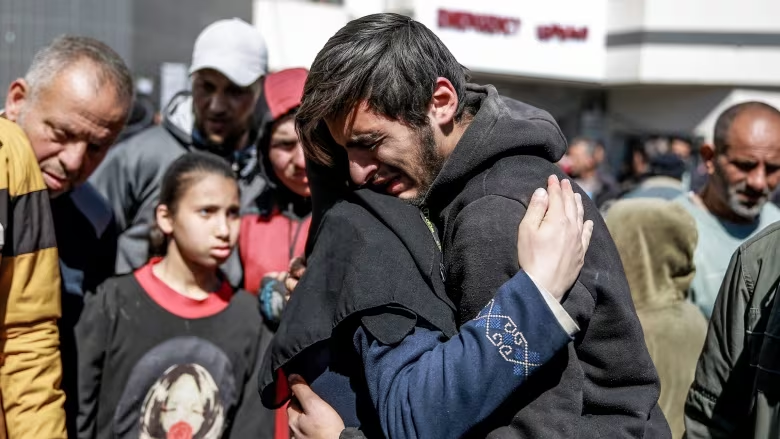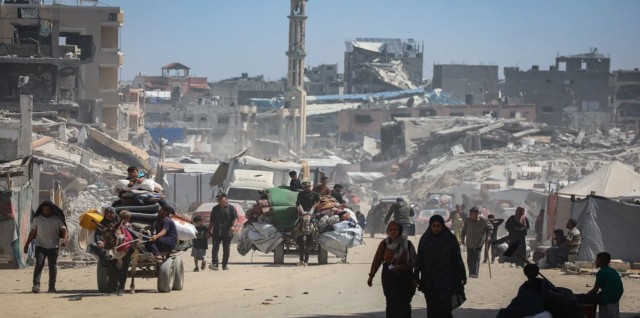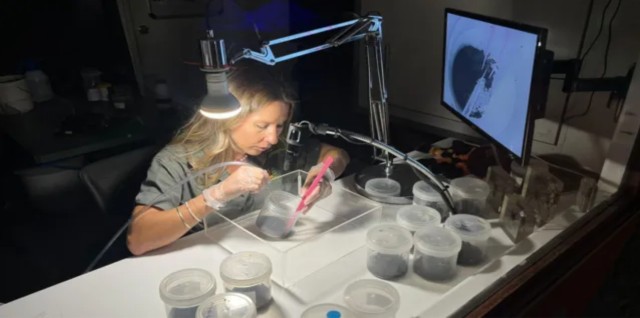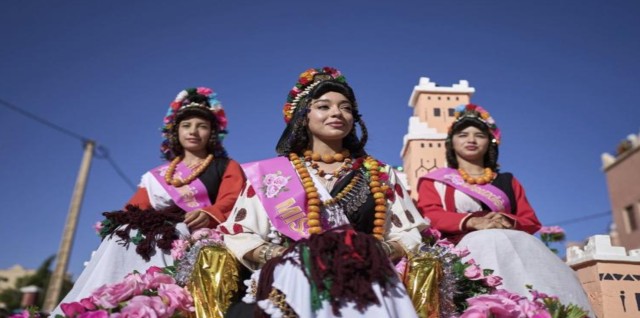
In the wake of an incident early Thursday morning, Palestinians are grieving as Palestinian officials report that Israeli forces fired upon a crowd at an aid distribution site in Gaza City. (AFP/Getty Images)
In a harrowing turn of events, Gaza's health authorities reported a grim scene unfolding on Thursday, with over 100 Palestinians fatally shot by Israeli forces as they awaited aid. However, Israel countered this claim, suggesting that many victims were tragically caught under the wheels of aid trucks.
The toll from the incident near Gaza City was staggering: at least 112 lives were lost and over 280 were injured, as per Palestinian health officials. This tragedy further darkened the shadow of war looming over Gaza, where the death toll had already surpassed 30,000, with another 70,000 wounded, after nearly five months of relentless conflict.
The sheer volume and severity of injuries overwhelmed medical responders, pushing facilities like Al-Shifa Hospital, already battered by Israeli airstrikes, to their limits.
For Hamas, the timing couldn't have been worse. They feared the incident could jeopardize ongoing talks in Qatar aimed at securing a ceasefire and the release of Israeli hostages, a topic that has strained relations between the militant group and Israel since the October 7 attack that left hundreds dead or missing.
When questioned about the potential impact of Thursday's tragedy on the talks, U.S. President Joe Biden's response was ominous: "I know it will."
As world leaders scrambled to address the crisis, the White House revealed that Biden had discussed the "tragic and alarming incident" with key figures in Egypt and Qatar, emphasizing the urgent need for both the release of hostages and a six-week ceasefire.
The U.S. State Department echoed the urgency, pledging to press Israel for answers while the Israeli government stated it was conducting its own investigation.
Amidst the grief and outrage, Palestinian President Mahmoud Abbas condemned the incident as an "ugly massacre," placing blame squarely on the Israeli military.
The international community echoed Abbas' sentiments, with the UN condemning the loss of civilian lives and injuries. However, the UN clarified that it had no involvement in the aid distribution that preceded the tragedy.
Israel, on the other hand, contested the narrative put forth by Gaza's health authorities. An Israeli military official cited two separate incidents, each contributing to the chaos and casualties, as aid trucks made their way into northern Gaza.
Regardless of the conflicting accounts, the toll of human suffering was undeniable. Social media circulated videos capturing the devastation, prompting UN aid chief Martin Griffiths to express his horror and dismay.
Meanwhile, at the UN Human Rights Council in Geneva, UN human rights chief Volker Türk denounced the ongoing conflict as a breeding ground for war crimes committed by all parties involved. He called for thorough investigations and accountability, stressing the urgent need for peace.
As the region teetered on the brink of further violence, Türk's words served as a sobering reminder of the urgent need for a resolution to the long-standing conflict plaguing Gaza and the Israeli-occupied West Bank.















